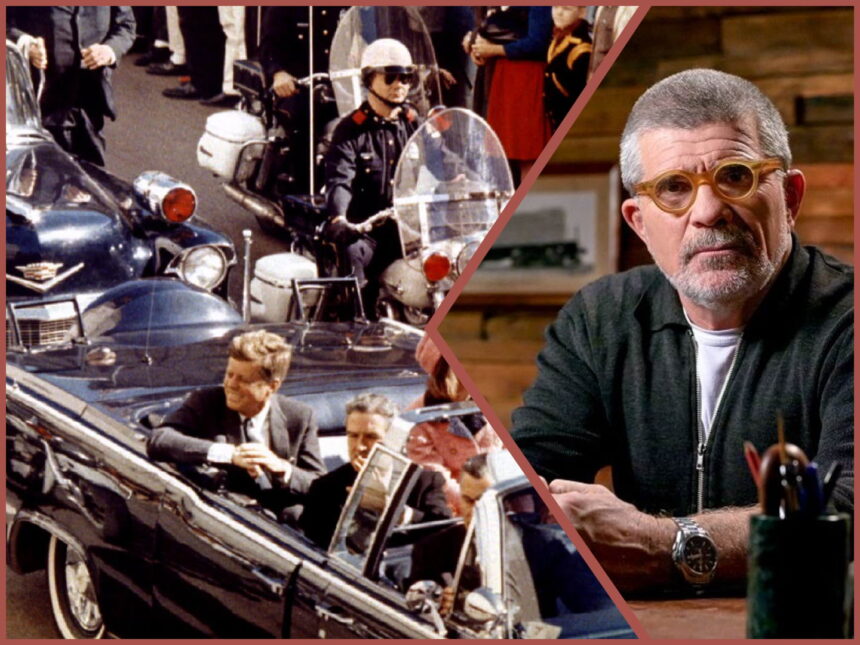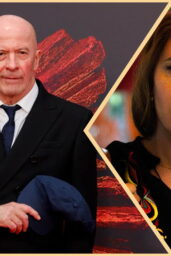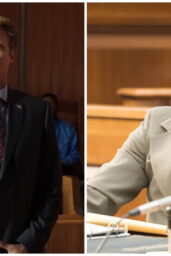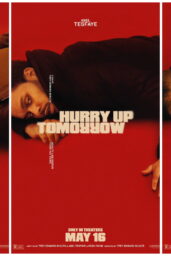Hollywood has always been a battlefield where egos clash, contracts crumble, and creative visions collide. But few sagas are as tangled—and tantalizing—as the one surrounding Assassination , the long-gestating JFK conspiracy thriller co-written by Pulitzer Prize-winning playwright David Mamet and producer Nicholas Celozzi. Imagine this: you're crafting what could be your magnum opus, only to have it snatched away mid-stride. That's exactly what happened when financier 308 US allegedly fired Mamet as director without authorization, replacing him with Barry Levinson. Now, Celozzi has filed a lawsuit accusing 308 US of multiple breaches, including stripping his co-writing credit. This isn't just a story about filmmaking—it's a Shakespearean drama set in Tinseltown.
Background and Key Details
The film was originally envisioned as a star-studded project helmed by Mamet, whose sharp dialogue and intricate plotting have made classics like Glengarry Glen Ross and The Untouchables . With an all-star cast featuring Al Pacino, Shia LaBeouf, John Travolta, and Viggo Mortensen, expectations were sky-high. However, after Mamet's dismissal, the original cast disbanded—save for Pacino—and the reins were handed to Levinson (Rain Man , Good Morning, Vietnam ).
Levinson's version now boasts Jared Leto, Jessica Chastain, Brendan Fraser, Bryan Cranston, and Pacino in revamped roles. According to reports, the plot revolves around Dorothy Kilgallen (played by Chastain), a real-life journalist who suspected Lee Harvey Oswald wasn't acting alone in JFK's assassination. It also delves into the alleged involvement of Chicago mobster Sam Giancana, tying organized crime to one of America's darkest political mysteries.
But why did Mamet get axed? Was it truly due to “contractual issues,” or does it stem from Mamet's controversial reputation as a staunch Trump supporter? Paul Schrader, briefly approached to direct, hinted at industry politics playing a role. Whatever the reason, the fallout has left fans questioning whether Levinson can match Mamet's gritty intensity.
Analysis: Art vs. Commerce
At its core, this debacle highlights the eternal tug-of-war between artistry and commerce in Hollywood. Mamet's films often polarize audiences; they're intellectually demanding yet emotionally raw. His direction might have lent Assassination a darker, more cerebral edge—a fitting tone for a story steeped in paranoia and betrayal. Levinson, on the other hand, excels at character-driven narratives but tends toward a softer touch. Will his take resonate with viewers seeking historical intrigue, or will it feel sanitized compared to Mamet's vision?
Moreover, the recasting raises questions about artistic integrity. When a project undergoes such drastic changes, does it lose its soul? Or can new talent breathe fresh life into old material? These aren't easy answers, but they underscore the fragility of creativity in an industry driven by dollars.
Cast Dynamics and Cinematic Promise
One silver lining is the current ensemble. Jessica Chastain brings gravitas to any role, and her portrayal of Dorothy Kilgallen could anchor the narrative. Meanwhile, Jared Leto's chameleon-like performances make him an intriguing choice for a morally ambiguous figure. Add Robert Elswit's cinematography—the man behind There Will Be Blood —and you've got technical brilliance on display. Still, nostalgia lingers for the original lineup, which promised fireworks under Mamet's guidance.
Conclusion: Lessons from the Chaos
What can we learn from Assassination 's tumultuous journey? Perhaps that even the most meticulously planned projects can unravel under pressure. Yet, there's beauty in imperfection. Whether Levinson delivers a masterpiece or a misfire, the film will stand as a testament to the messy, unpredictable nature of moviemaking.
So, dear reader, I leave you with this question: In a world obsessed with perfection, should we embrace the chaos of creation—or fear it? And do you believe Levinson can salvage Mamet's discarded dream?
As someone who admires both Mamet's razor-sharp prose and Levinson's humanistic storytelling, I find myself torn. Mamet's departure feels like a missed opportunity to explore JFK's assassination through a lens of moral ambiguity and biting satire. On the flip side, Levinson's involvement suggests a shift toward emotional resonance, which may appeal to broader audiences. Ultimately, I hope Assassination transcends its troubled production to become something meaningful—a reminder that truth, much like cinema, is rarely black and white.












